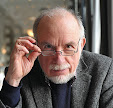(erschienen im Tages-Anzeiger vom 9.11.2019, aktualisiert 6.7.2020)
Für einen Arzt ist der Umgang mit der Klimakrise durch Publikum, Politik sowie viele Medien und Experten eigenartig, um nicht zu sagen befremdlich. Ab Beginn der Ausbildung wird dem Arzt klargemacht, das er im Falle einer Fehlleistung - eines sogenannten Kunstfehlers - vor Gericht und sogar ins Gefängnis kommen kann. Kunstfehler können z.B. darin bestehen, dass man eine schlimme, eine noch schlimmere, oder die schlimmste Möglichkeit verpasst. Diese schlimmen Möglichkeiten mögen selten und sehr selten sein, aber das wird vor Gericht nicht helfen. Ein oft angeführtes Beispiel ist die Blutung aus dem Enddarm: Weit häufigste und wahrscheinlichste Ursache sind natürlich harmlose Haemorrhoiden, aber was für den Arzt vor allem zählt ist der Dickdarmkrebs. Wenn er diesen übersieht, und nur Haemorrhoiden behandelt, die auch vorhanden sein können, so kann daraus ein Gerichtsfall werden.
Deshalb ist ist die schlimmste Möglichkeit für den Arzt eine dauernde Sorge, wir suchen sie, wir bereiten uns darauf vor und die harmlosen und häufigen Ursachen sind fast eine Nebensache. Dafür haben wir eine Art doppelte Buchführung im Kopf, zwei Algorithmen: Der eine sucht und berechnet dauernd die wahrscheinlichste Möglichkeit von Ursache/Verlauf/Endresultat, der andere die schlimmste. Im Zweifel geht man von der schlimmeren Möglichkeit aus. Weil die Medizin ein unpräzises und unvorhersehbares Geschäft ist müssen wir uns oft mit Näherungsresultaten begnügen.
Für einen Arzt ist der Umgang mit der Klimakrise durch Publikum, Politik sowie viele Medien und Experten eigenartig, um nicht zu sagen befremdlich. Ab Beginn der Ausbildung wird dem Arzt klargemacht, das er im Falle einer Fehlleistung - eines sogenannten Kunstfehlers - vor Gericht und sogar ins Gefängnis kommen kann. Kunstfehler können z.B. darin bestehen, dass man eine schlimme, eine noch schlimmere, oder die schlimmste Möglichkeit verpasst. Diese schlimmen Möglichkeiten mögen selten und sehr selten sein, aber das wird vor Gericht nicht helfen. Ein oft angeführtes Beispiel ist die Blutung aus dem Enddarm: Weit häufigste und wahrscheinlichste Ursache sind natürlich harmlose Haemorrhoiden, aber was für den Arzt vor allem zählt ist der Dickdarmkrebs. Wenn er diesen übersieht, und nur Haemorrhoiden behandelt, die auch vorhanden sein können, so kann daraus ein Gerichtsfall werden.
 |
| Vergessene Schere |
Die Experten des Intergovernmental Panel on Climate Change (IPCC) verhalten sich anders: Sie beliefern uns mit einleuchtenden Voraussagen in der Mitte eines angeblichen Wahrscheinlichkeitskorridors. Als Arzt wäre man reflexartig interessierter an den schlimmsten Möglichkeiten. Aber - wie erst letztes Jahr allgemein durchsickerte - vernachlässigt das IPCC mehrere bekannte verschlimmernde Faktoren und Selbstverstärkungsmechanismen (*) und liefert damit nicht einmal den wahrscheinlichsten Verlauf, gar nicht zu sprechen vom schlimmsten, welche jedoch unser Verhalten bestimmen sollten. Das überrascht nicht sehr, ist doch das IPCC ein von Regierungen abhängiges Gremium: Alle Regierungen wollen im Sattel bleiben und deshalb werden Probleme in der Regel nicht voll zugegeben.
Jedermann spricht von Kippmechanismen und dem Punkt ohne Wiederkehr, welche jederzeit eintreten können, wenn sie nicht schon eingetreten sind. Wenn ich die zunehmend beschleunigten Temperaturkurven betrachte, die fast 400 Temperaturrekorde letzten Sommers, den letzten September, Oktober und Mai - die wärmsten je gemessenen - und wenn ich an das Methan denke, das aus Gewässern und auftauendem Permafrost sprudelt, oder an den immer noch steigenden Output von CO2 und SUV's, an das brennende Australien und an das anhaltende Tabu auf Diskussionen über die Bevölkerungsgrösse, so sagen mir meine internen Algorithmen, dass die Auflösung der Zivilisation in den nächsten Dekaden nicht mehr ein worst-case Szenario ist, sondern das wahrscheinlichste. Worst-case wäre, dass alles schon in den nächsten Jahren passiert.
Wenn man die Haltung und Reaktion der offiziellen Stellen auf die Klimakrise mit den Massstäben misst, die routinemässig auf ärztliches Handeln angewandt werden, so wäre das ein Fall fürs Gericht. Weil es die ganze Welt betrifft und in einer Art Holocaust 2.0 enden wird müsste man sich etwas wie einen Nürnberger Gerichtshof für die ganze Welt überlegen. Nun könnte man einwenden, dass das schlimme Ende noch nicht bestätigt ist. Aber wenn es bestätigt ist, wird es für Gerichtsverhandlungen zu spät sein.
Um das Thema auf den Tisch zu legen könnte man sich eine gespielte Gerichtsverhandlung vorstellen, ähnlich Ferdinand von Schirachs Theaterstück "Terror": Ankläger wären Kinder, Tiere, Pflanzen und ihre Vertreter. Angeklagte wären Regierungen, Firmen, Experten usw. Das Publikum wäre die Geschworenen. Vielleicht könnte eine solche Inszenierung das Bewusstsein über die Dringlichkeit der Situation schärfen.
________________________________________________
(*) Von den IPCC-Prognosen nicht berücksichtigte Selbstverstärkungsmechanismen:
________________________________________________
(*) Von den IPCC-Prognosen nicht berücksichtigte Selbstverstärkungsmechanismen:
- Das Abschmelzen des Eises vermindert die Erdreflexion was den vorausgesagten Temperaturanstieg um 20 oder mehr Prozent erhöhen kann.
- Die Treibhausgase und ihr jährlicher Ausstoss bleiben nicht stabil sondern steigen weiter an, was den Temperaturanstieg gegenüber den Voraussagen weiter beschleunigt.
- Seit vier Jahren steigt das Methan stark an, weiterer Anstieg ist durch Erwärmung von Feuchtgebieten und Permafrost programmiert, im schlimmsten Fall kann das zu fatalem Temperaturanstieg innert weniger Jahre führen.
- Die Ur- und Regenwälder gehen weltweit durch Rodung, Trockenheit und Brände zurück und können so immer weniger CO2 binden, strafen zugleich den CO2-Ablasshandel mit Zertifikaten Lügen.
- Seit 2019 sagen verschiedene Klimamodelle mit weiterer Erwärmung einen Schwund der Wolkendecke voraus, was die Erwärmung verstärken könnte.




